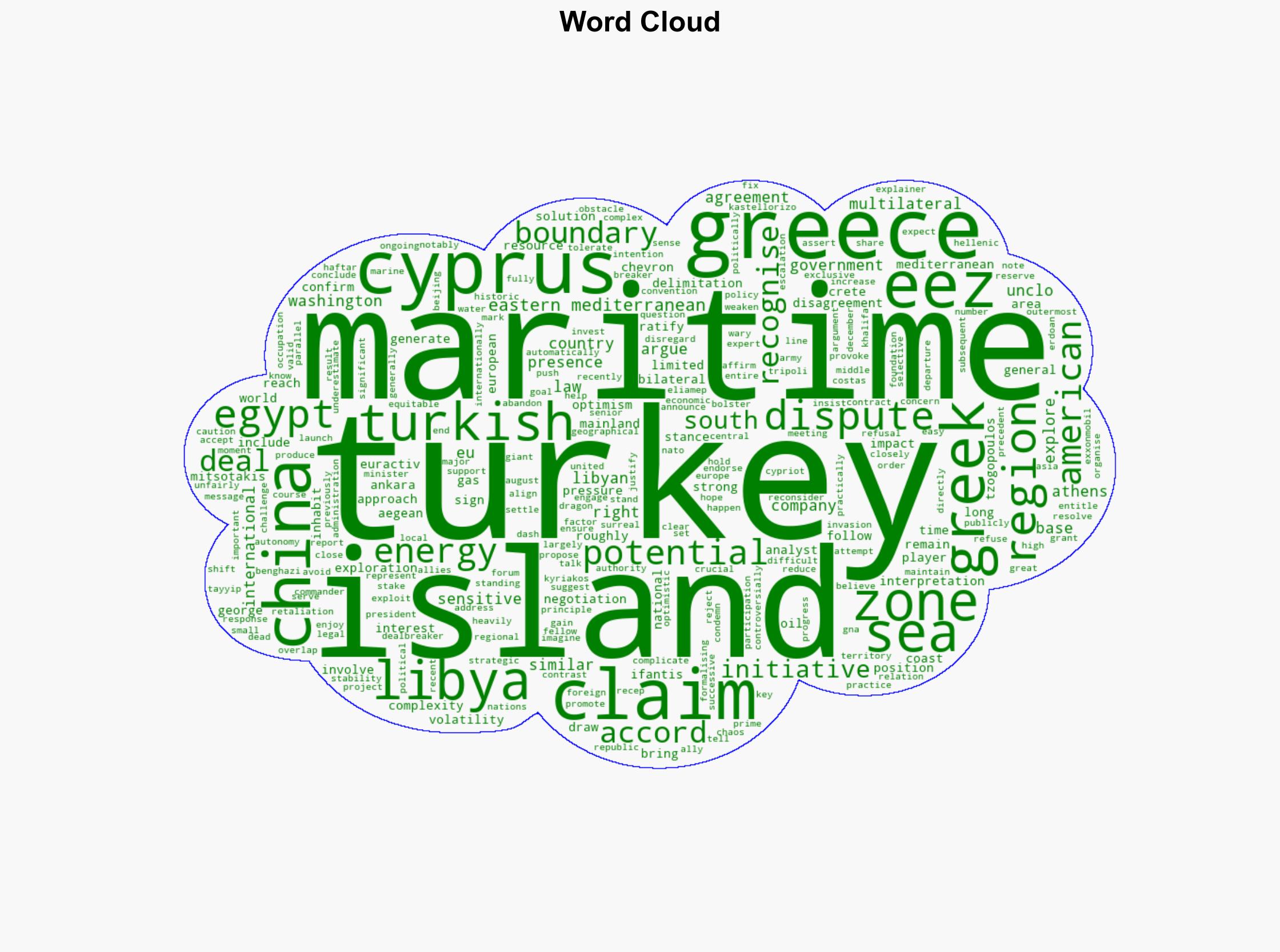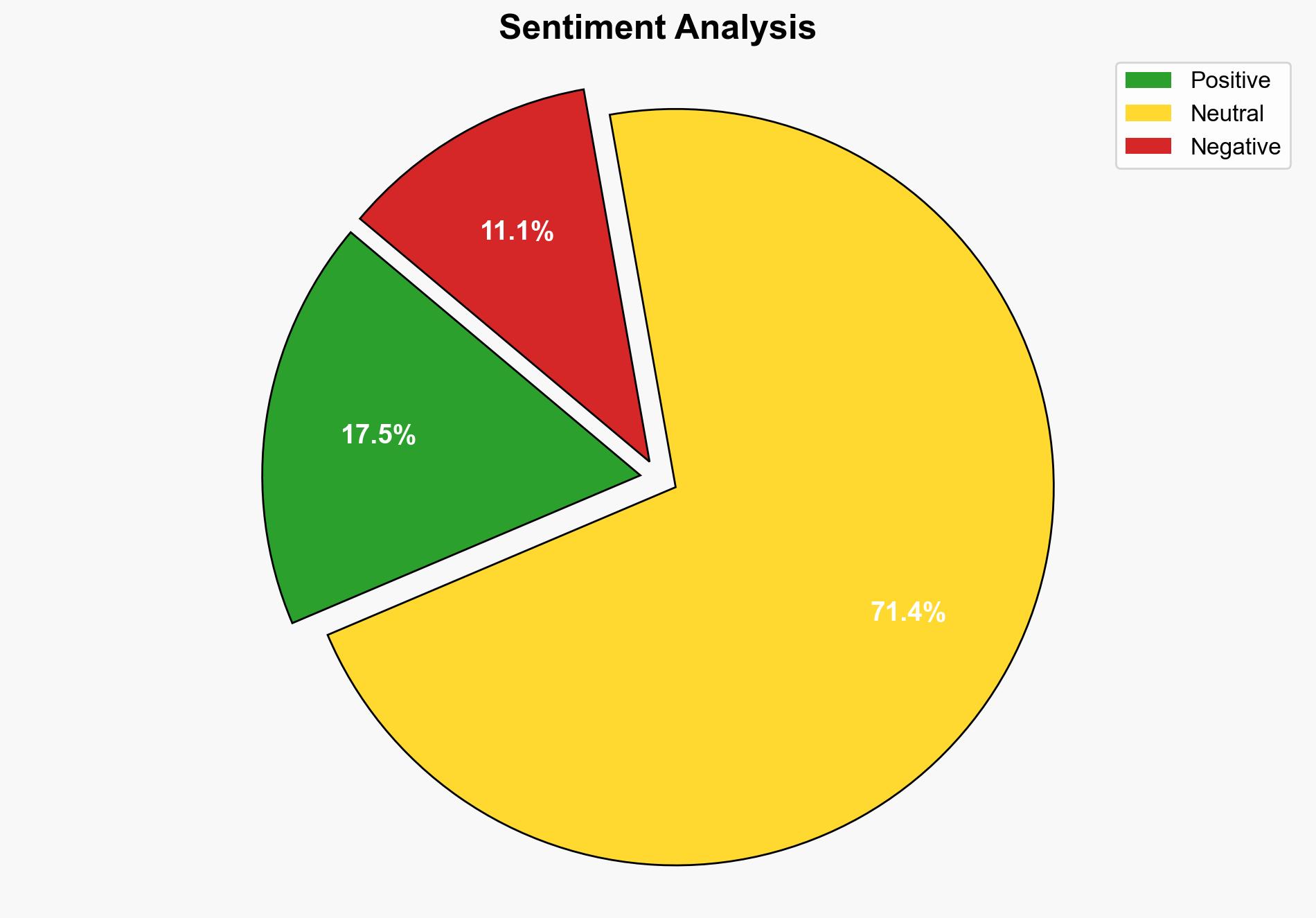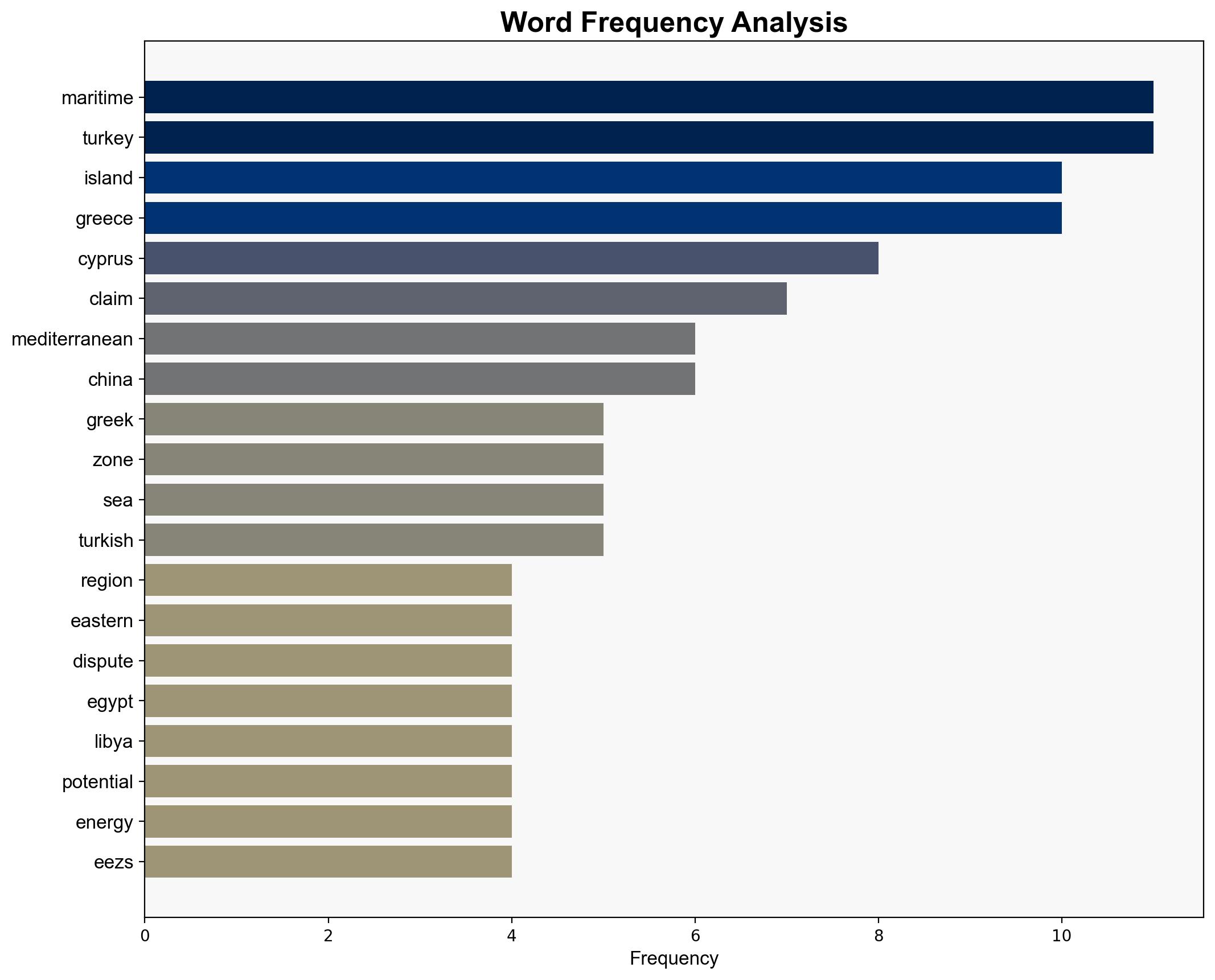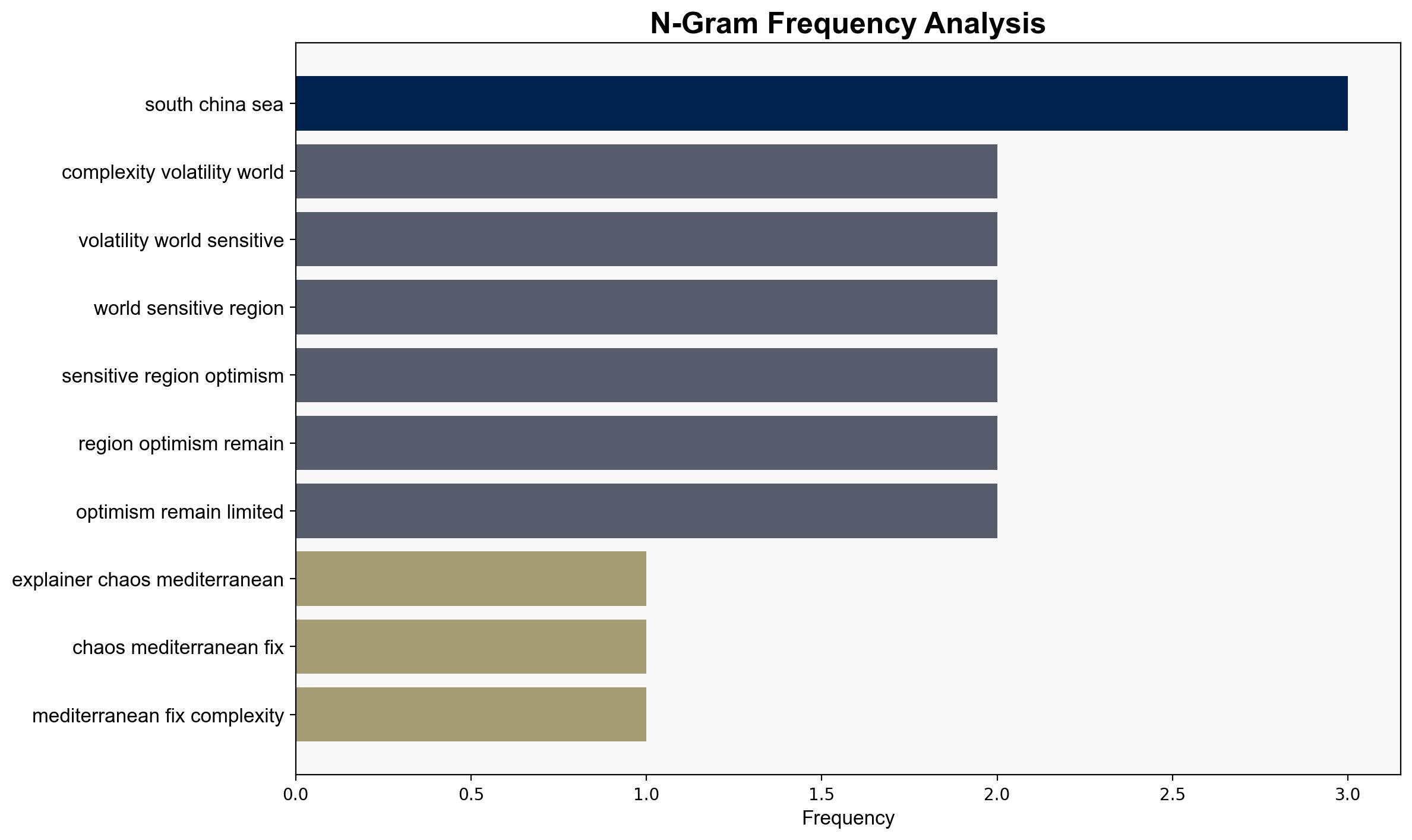EXPLAINER Could the Mediterranean chaos be fixed – EURACTIV
Published on: 2025-10-31
Intelligence Report: EXPLAINER Could the Mediterranean chaos be fixed – EURACTIV
1. BLUF (Bottom Line Up Front)
The most supported hypothesis is that the Mediterranean disputes will remain unresolved in the near term due to entrenched positions and geopolitical complexities. Confidence level is moderate. Recommended action is to support multilateral dialogue initiatives while preparing for potential escalation scenarios.
2. Competing Hypotheses
1. **Hypothesis A**: The Mediterranean disputes will remain unresolved due to entrenched national positions, lack of mutual recognition, and geopolitical rivalries.
2. **Hypothesis B**: A multilateral approach led by Greece, involving key regional actors, will lead to a partial resolution of maritime disputes, fostering stability.
Using the Analysis of Competing Hypotheses (ACH) 2.0, Hypothesis A is better supported. The entrenched positions of Turkey and Greece, as well as the lack of recognition of Cyprus by Turkey, present significant barriers to resolution. Hypothesis B is less supported due to the historical failure of similar initiatives and the complexity of aligning interests among diverse stakeholders.
3. Key Assumptions and Red Flags
– **Assumptions**: It is assumed that all parties are rational actors seeking to maximize their strategic interests. There is also an assumption that international law will be a guiding principle in negotiations.
– **Red Flags**: Turkey’s non-recognition of Cyprus and its maritime deal with Libya are significant red flags indicating potential for increased tension. The EU’s limited influence in enforcing agreements is another concern.
– **Blind Spots**: The potential for non-state actors to exploit instability in the region is not addressed.
4. Implications and Strategic Risks
– **Geopolitical Risks**: Continued disputes could lead to military skirmishes, impacting regional security and EU energy interests.
– **Economic Risks**: Unresolved disputes may deter investment in energy exploration, affecting EU’s strategic autonomy.
– **Cascading Threats**: Increased tensions could spill over into broader EU-Turkey relations, affecting trade and migration policies.
5. Recommendations and Outlook
- Support multilateral dialogue initiatives, potentially under UN auspices, to ensure broader international legitimacy.
- Enhance EU diplomatic efforts to mediate between Turkey and Greece, focusing on confidence-building measures.
- Scenario Projections:
- **Best Case**: Successful multilateral negotiations lead to a framework agreement, reducing tensions.
- **Worst Case**: Escalation into military conflict, disrupting regional stability and energy supplies.
- **Most Likely**: Prolonged stalemate with periodic diplomatic engagements but no substantial resolution.
6. Key Individuals and Entities
– Kyriakos Mitsotakis
– Recep Tayyip Erdoğan
– General Khalifa Haftar
7. Thematic Tags
national security threats, regional focus, geopolitical tensions, energy security





